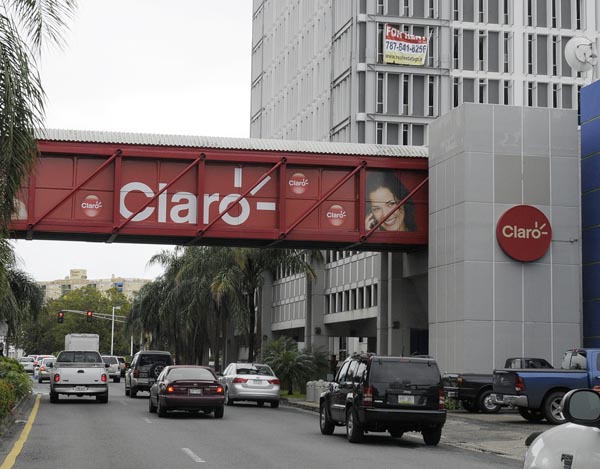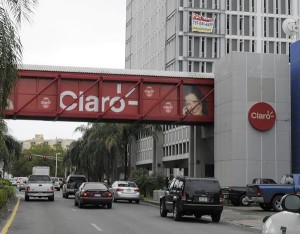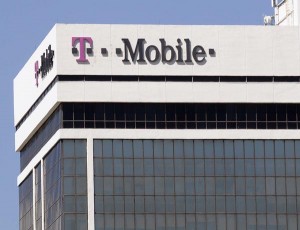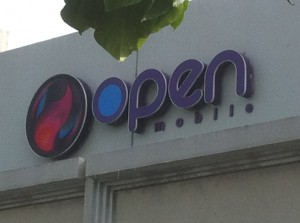FCC includes 3 Puerto Rico co’s in broadband pilot program


Claro Puerto Rico is one of three carriers to roll out subsidized broadband programs. (Credit: © Mauricio Pascual)
The Federal Communications Commission has included three Puerto Rico telecommunications service providers in a nationwide pilot program that seeks to increase broadband adoption and retention among low-income consumers.
Open Mobile, T-Mobile and Claro de Puerto Rico are among just 14 carriers that were selected to roll out the initiatives in their jurisdictions. The companies will receive subsidies through the FCC’s Lifeline fund, which will distribute $14 million over 12 months to establish the broadband effort.
Upon announcing the participating companies Thursday, the FCC explained each carrier’s proposal in detail, which calls for working with a local partner to keep track of usage and adoption statistics, a key component of the pilot program.
To facilitate broadband adoption by low-income consumers — a critical need in Puerto Rico based on recent findings — Claro’s pilot project proposes offering a variety of broadband plans available islandwide through its wireless and landline platforms.
Claro, which will keep tabs on the program’s progress with partner The Research Office Inc., has established different price points and different equipment for the pilot program.
For consumers interested in wireline broadband and voice services, options will include DSL with a defined voice package and computer hardware including tablets, laptop and desktop computers for as little as $25.99. For consumers interested in wireless broadband and voice services, options will include 2G of data and 300 minutes of voice for as little as $26.82. Depending on the package, customers will be required to make a one-time upfront payment.
“We are pleased and honored with the FCC’s vote of confidence and trust that our pilot effort will lead to insights that will accelerate broadband adoption on the island,” said Irmarie Cervera, deputy director of corporate relations for Claro.
The carrier is eligible to receive up to $2.5 million for its participation, the FCC said.

T-Mobile’s proposal will analyze the best marketing practices to draw low-income consumers into broadband use. (Credit: © Mauricio Pascual)
Meanwhile, T-Mobile, in partnership with the Ana G. Méndez University System and Centro Para Puerto Rico, will test certain advertising and outreach methods to determine which one most effectively increases broadband adoption. T-Mobile will offer a flat-rate subsidy of $20 off broadband plans with varying usage limits. The carrier is eligible to get up to $505,400 back from the FCC.
“T-Mobile Puerto Rico’s participation in the pilot program will be critically important as it will establish a broadband lifeline program for eligible consumers in Puerto Rico, and will provide the Commission with vital information for the establishment of a permanent Lifeline program that makes affordable broadband service available to eligible low-income households.”
T-Mobile Puerto Rico will sign up customers for its broadband Lifeline service offerings over a three-month period and then will provide discounted service for a period of up to 12 months, provided the customer remains eligible for Lifeline service.
The carrier will offer high-speed broadband service at monthly rates ranging from $9.99 per month to $84.99 per month, depending on usage and inclusion of additional voice and text services. All T-Mobile Puerto Rico customers, including Lifeline customers, pay a $35 activation fee.
Rounding out the trio is Open Mobile’s proposal, which calls for working with the San Juan municipal government to offer subsidized services to about 1,100 participants in two schools — the School of San Juan and the Colegio Universitario de San Juan — as well as 1,400 current Lifeline subsidy recipients for voice services.
The carrier will offer a flat subsidy of $25 off five different wireless broadband plans, each with the same price and usage limits, but with access to different equipment, namely a USB modem, hotspot modem, tablet, laptop, and desktop computers) that the subscriber would pay for at a discounted amount.
Open Mobile will collect data in partnership with Connected Nation on how the type of equipment impacts data usage and adoption. The carrier will receive no more than $661,613 from the FCC to launch the project.
“We will provide service, distribute, offer online education and maintain operational plans of action to retain broadband subscribers to the pilot program,” the carrier told the FCC.
Customers will be eligible to take part in the pilot project only if they are enrolled in a government assistance program, either local or federal.












